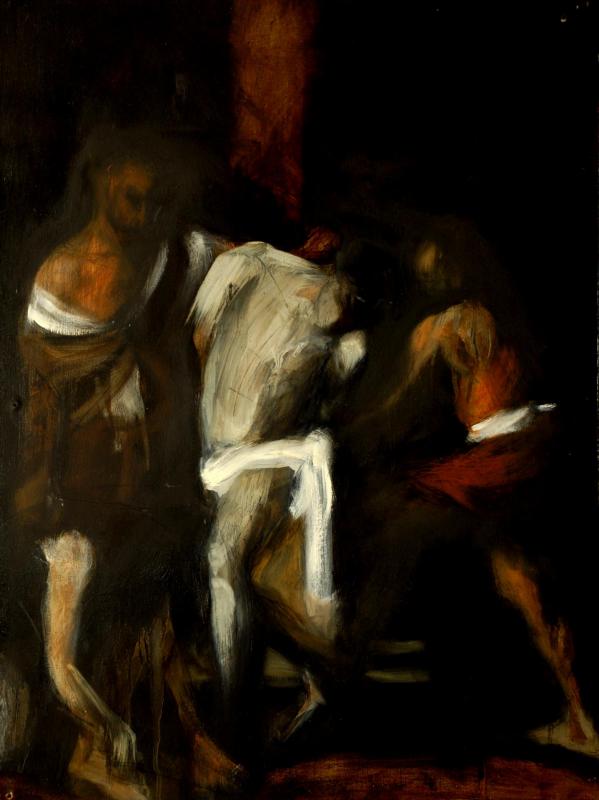Literary Laundry is committed to a fiction that weds reason, passion, and beauty. This program is not without its complications. Here is Baudelaire, of all people, agonizing over the perils of art in the modern age:
"To send passion and reason packing is to do literature to death. To repudiate the efforts of the society that came before us, its philosophy and Christianity, would be to commit suicide, to reject the impulse and tools of improvement. To surround oneself exclusively with the seductions of physical art would mean in all probability to lose oneself. In the long run, the very long run, you will see, love, feel only what is beautiful, you will be unable to see anything but beauty. I use the word in its narrow sense. The world will appear to you as merely material. The mechanisms that govern its movement will long remain hidden.
May religion and philosophy return one day, forced into being by the cry of the desperate man. Such will ever be the destiny of those fools who see nothing in nature but rhythms and shapes. Yet at first philosophy will appear to them as no more than an interesting game, an amusing form of gymnastics, a fencing in the void. But how they will be punished for that! Every child whose poetic spirit is overexcited and who is not immediately presented with the stimulating spectacle of a healthy, industrious way of life, who constantly hears tell of glory and of sensual pleasure, whose senses are every day caressed, inflamed, frightened, aroused, and satisfied by works of art, will become the unhappiest of men and make others unhappy too. At twelve he will be pulling up his nanny’s skirts, and if some special skill in crime or art doesn’t raise him above the crowd, by thirty he will be dying in a hospital. Forever inflamed and dissatisfied, his spirit will go abroad in the world, the busy industrious world: it will go abroad, I tell you, like a whore, yelling: Plasticity! Plasticity! Plasticity, that horrible word makes my flesh creep, plasticity has poisoned him, yet ye can’t live without his poison now. He has banished reason from his heart and, as a just punishment for his crime, reason refuses to return. The happiest thing that can happen to him is that nature strike him with a terrifying call to order. And such, in fact, is the law of life: he who refuses the pure joys of honest activity can fell nothing but the terrible joys of vice. Sin contains its own hell, and from time to time nature says to pain and misery: go and destroy those revels!
The useful, the true, the good, all that is really lovable, these things will be unknown to him. Infatuated by his exhausting dream, he will seek to infatuate and exhaust others with it. He will have no time for his mother, his nanny: he will pull his friends to pieces or love them only for their form; his wife too, if he has one, he will despise and debase.
The immoderate pleasure he takes in form will drive him to monstrous and unprecedented excesses. Swallowed up by this ferocious passion for the beautiful and the bizarre, the pretty and the picturesque, for the gradations are many, the notions of the true and the just will disappear. The frenetic passion for art is a cancer that eats up everything else: and since the drastic absence of the true and the just in art is tantamount to the absence of art, man in his entirety will disappear: excessive specialization in a single faculty can only end in emptiness . . . Literature must go back and temper itself once again in a more healthy atmosphere. All too soon it will become clear that a literature that refuses to develop in harmony with science and philosophy is a homicidal and indeed suicidal literature."
~from L’École païenne, trans. Tim Parks
All the pieces in this issue address Baudelaire’s problems, which are our problems, in their own ways.
“Embarcadero” presents the portrait of an intellectual struggling for insight in a world of epigones. It tells the story of a writer’s efforts – amidst despair and exultation – to explain the void left by the demise of titanic novelist James Marion.
“Faith” narrates the life of the accountant Pablo. The story is notable less for its examination of faith-in-numbers (a peculiarity of modern humanity) than for its exploration of a man who, faced with mounting life difficulties, refuses the three wishes offered by the genie he discovers in an antique lamp.
“Shoulder Me” tells about the romance between two military men in the age of Don’t Ask, Don’t Tell. It is a story of love, not one of political or social hypocrisy. With notes that alternate between chilling and warm, it examines the terrible sacrifices of trust that we are willing to make in the service of those we love.
Lastly, “A Thousand Words” recounts the tale of four isolated, under-loved siblings. In so doing, the piece examines the nature of perception, memory, and familial love, recasting all such concepts in its particular vision of a contemporary American Gothic.
As Baudelaire said: “the gradations are many.”

